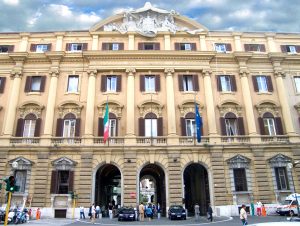The 2021-2027 long-term EU budget and NextGenerationEU, notably through the Recovery and Resilience Facility and the Recovery Assistance for Cohesion and the Territories of Europe (REACTEU) package, provide a once in a lifetime opportunity to invest in a truly future-proof economy.
What contributions can the competition drive?
However, public support alone cannot secure sufficient change on the ground – while it can help to provide the means, businesses must also feel the need to innovate, to come up with new, more efficient solutions, and to invest at scale. Competition contributes to that drive, stimulating businesses to innovate and invest to succeed in the market place, while ensuring fair conditions for European businesses of all sizes and that EU consumers continue to benefit from the competitive process.
Why do we need a resilient Single Market?
To deliver on these objectives, Europe needs a strong and resilient Single Market that supports entrepreneurship at all its stages, enables businesses of all sizes to get the most out of Europe’s scale and achieve scale themselves to better compete in a globalised economy. It needs competitive markets sending the right price signals to drive investments to enable and deploy breakthrough innovation for greener products, services and value chains, more advanced digital infrastructure and tools (e.g. cloud, microprocessors, Artificial Intelligence) and less polluting and more efficient manufacturing technologies.
It needs a fair labour market, with concrete actions to address the existing and emerging skills gaps and inequalities in the workforce. It needs a choice of products and services, contributing to reliable and diverse supply chains, and to meeting demand of European businesses and consumers in a timely fashion. In addition, it needs these choices to be affordable for all, to the benefit in particular of households and SMEs. And it needs to preserve cohesion in the Single Market, so that its strengthening does not lead to increasing economic, social and territorial disparities.
European Commission and Member States are working hand in hand
All this calls for strong and effective competition policy and enforcement, to give the European economy the agility to mount the recovery path and meet its twin green and digital ambitions in a sustainable, socially and territorially inclusive manner. To achieve this in the European Union, the Commission works hand in hand with Member States’ national competition authorities and under the scrutiny of Union Courts.
Currently, the Commission is pursuing a review of competition policy tools with unprecedented scope and ambition: to make sure all competition instruments (merger, antitrust and State aid control) remain fit for purpose. In parallel, the Commission also seeks to equip itself with new instruments aimed at tackling emerging challenges in the Single Market, such as digital gatekeepers or the distortive effects of foreign subsidies. This review, combined with continued strong enforcement of competition rules, aims at enabling EU industries to lead the twin transitions, and fostering the resilience of the Single Market.
At the same time, beyond European borders, there is momentum for strengthened enforcement and international convergence in competition policy and enforcement practices across an increasing number of jurisdictions. This is important to ensure fair competition in all sectors and to enable European firms to reach efficient scale.
Read the official communication here.





